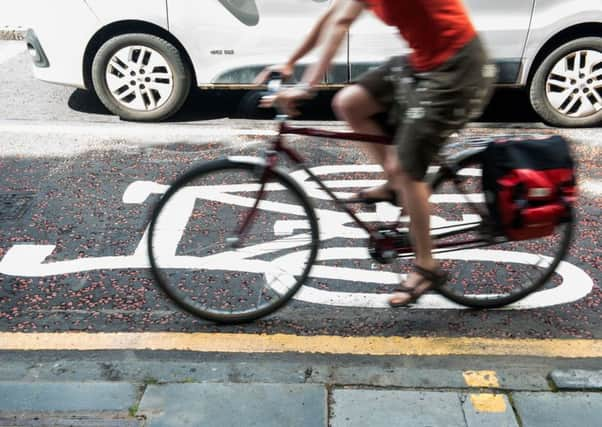Reality check kicks bike journey target to the kerb


Cycling Scotland, the official cycle promotion agency, has admitted the “vision”, set in 2010, is “unlikely to be achieved” by then.
It said increasing cycling from the current level of less than 2 per cent to 10 per cent of journeys in four years remained “theoretically possible”, but would be unprecedented globally.
Advertisement
Hide AdAdvertisement
Hide AdIt added: “The national data suggest the vision of a national 10 per cent modal share will not be achieved by 2020.”
The agency called for a “significant and immediate change of gear”, by focusing on cities and large urban areas, which were the most likely to reach 10 per cent.
It called for a “feasible route to 10 per cent” to be devised for other parts of Scotland.
Cycle campaign group Spokes has already claimed the goal was “hugely ambitious”, and now “impossible” to achieve at any likely funding levels.
The new approach is revealed in the latest progress report on the Cycle Action Plan for Scotland (CAPS), which set the 10 per cent goal.
It said: “While the modal share of 1.4 per cent in 2014 is up from 1 per cent the previous year, there is no indication of the necessary trend in national cycling levels.”
Cycling Scotland said greater funding and improvements to make cycling more attractive were needed.
The report highlighted that more school children were being trained to cycle, but they and their parents didn’t feel safe on the roads.
Advertisement
Hide AdAdvertisement
Hide AdCycling Scotland chief executive Keith Irving said: “The progress report demonstrates more people are cycling, there is record funding from Transport Scotland and national and local government need to go much, much further to get more people cycling, tackling the health, climate change and economic challenges we face.”
Transport Scotland said it was sticking to its 10 per cent goal. A spokesman for the agency said: “We remain determined to realise the vision of 10 per cent of everyday journeys in Scotland to be taken by bike by 2020. We will consider all recommendations from Cycling Scotland’s report as we look to refresh CAPS.”